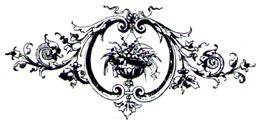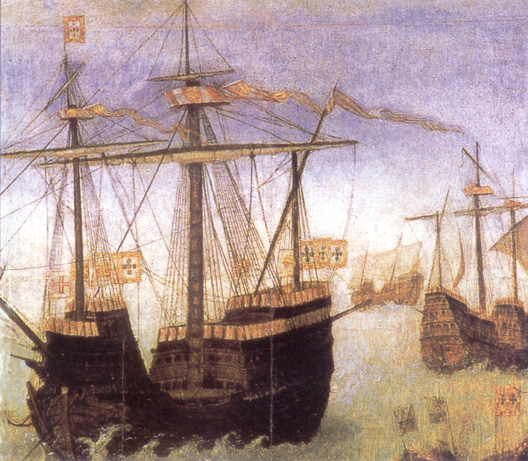
In response to a stimulating challenge from Luís Sá Cunha, this present Documental Anthology, compiled by the Cultural Institute of Macau's "Review of Culture", intends bringing to the fore a significant portion of the vast array of texts about the Far East written by Spanish and Portuguese authors during the sixteenth and seventeenth centuries. The texts which have been chosen here, illustrate various aspects of the history of Luso-Chinese relations and the Iberian vision of China and its people, with a certain amount of history on Macao.
There is no doubt that the Portuguese were the first Europeans to reach the distant East by sea as they landed in 1513 and firmly established themselves from 1557. Shortly after they began an uninterrupted production and diffusion of information and chronicles which exposed this fascinating and exotic world to astonished European eyes and evoked admiration and enthusiasm. However the Spanish, who confined themselves solely to the Philippines from 1565, were also involved with the diffusion of knowledge about China throughout Europe, preparing and circulating a number of important geographical reports. The religious and lay chroniclers of both Iberian kingdoms took charge of spreading even more news which did not stop arriving from parts of the Far East. The union of the Spanish and Portuguese Crowns, which spanned from 1580 to 1640, contributed more to combining their efforts in the sense of revealing facts about China among cultured readers as many Portuguese writers made no hesitation in resorting to Spanish for attracting more attention while Spanish intellectuals accessed texts of Portuguese origin more easily, which they soon reproduced. Therefore the Luso-Spanish character of this Documental Anthology is justifiable as it did not wish to artificially separate Spanish and Portuguese text.
Those texts which make up this Documental Anthology were gathered from various sources of the rich 'expansionist literature' of Iberia [...]. [...] Thorough annotations were added in order to solve any possible doubts on the part of the reader and to clarify more obscure aspects of respective historical and geographical context. A brief Introduction has been added to each of the texts with essential information on the author and the following extract. The Portuguese Lexicon at the end of issue no 33 systemises the annotations made throughout thereby making it easier to solve problems of interpretation. As far as the Bibliography is concerned, it extends to all the materials used thereby making it a useful tool for more research in the future by those interested. Finally, the Introduction attempts to place the texts in perspective by presenting and summarising China's impact on Iberian cultures.

Life and Martyrdom St. Auta-detail. ca 1520. Oil on canvas. Museu Nacional de Antiga (National Museum of Ancient Art) Collection, Lisbon.
In: GARCIA, José Manuel, Portugal e os Descobrimentos, Lisboa, Comissão Nacional para as Comemorações dos Descobrimentos Portugueses,1992, P.237.
* Ph. D in History, by the Faculdade de Letras (Faculty of Arts) of the Universidade de Lisboa (University of Lisbon), Lisbon. Director of the Universidade Lusófana, in Lagos, Algarve. Member of the Sociedade de Geografia de Lisboa (Geography Society of Lisbon) and the Portuguese Academia da Marinha (Naval Academy). Bursar of the Divisão de Estudos, Investigação e Publicações (Division of Studies, Research and Publications) of the Instituto Cultural de Macau (Cultural Institute of Macau).
start p. 11
end p.